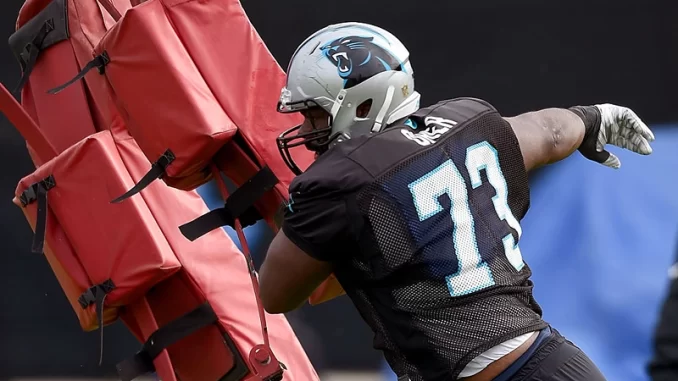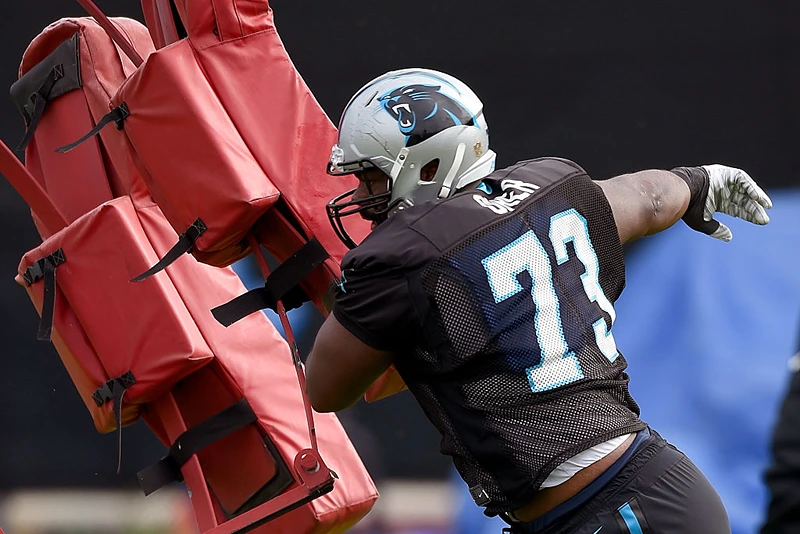

OAN’s Noah Herring
1:13 PM – Monday, August 14, 2023
Retired NFL player Michael Oher, who’s supposed adoption out of poverty inspired the 2009 movie “The Blind Side,” petitioned a Tennessee court Monday claiming that the family never legally adopted him and lied about their familial status for profit.
Advertisement
The 14-page petition, which was filed in Shelby County, Tennessee, probate court, alleges that Sean and Leigh Tuohy, who accepted Oher into their home as a high school student, never adopted him. Instead, Oher claims that the couple tricked him into signing a document making them his conservators, which gave them legal authority to make business deals in his name.
The petition also alleged that the Tuohys used their power as conservators to strike a movie deal that paid them and their two birth children millions of dollars in royalties, while Oher got nothing for a story “that would not have existed without him.”
Since the movie, the Tuohys have continued calling the 37-year-old their adopted son and have used that title to promote their foundation.
“The lie of Michael’s adoption is one upon which co-Conservators Leigh Anne Tuohy and Sean Tuohy have enriched themselves at the expense of their Ward, the undersigned Michael Oher,” the legal filing says. “Michael Oher discovered this lie to his chagrin and embarrassment in February of 2023, when he learned that the Conservatorship to which he consented on the basis that doing so would make him a member of the Tuohy family, in fact provided him no familial relationship with the Tuohys.”
Oher’s petition asked the court to end the Tuohy’s conservatorship and to issue an injunction banning them from using his name and likeness. It also seeks full accounting on the money gained off of Oher’s name to have the couple pay him his fair share of profits.
“Since at least August of 2004, Conservators have allowed Michael, specifically, and the public, generally, to believe that Conservators adopted Michael and have used that untruth to gain financial advantages for themselves and the foundations which they own or which they exercise control,” the petition says. “All monies made in said manner should in all conscience and equity be disgorged and paid over to the said ward, Michael Oher.”
Oher was a senior in high school when he signed the conservatorship papers.
“They explained to me that it means pretty much the exact same thing as ‘adoptive parents,’ but that the laws were just written in a way that took my age into account,” Oher wrote in his 2011 best-selling memoir “I Beat the Odds.”
There are important legal distinctions between adoption and conservatorship. If Oher had been adopted, he would have been a legal member of the family and would have retained the power to handle his own financial affairs. Under the conservatorship, Oher surrendered the authority to the Tuohys, even as a legal adult with no disabilities.
According to the legal filing, the movie paid the Tuohys and their two birth children each $225,000, plus 2.5% of the film’s “defined net proceeds.” While the deal allowed the family to profit from the film, the petition claims that a separate 2007 contract purportedly signed by Oher appeared to “give away” the rights to his story to 20th Century Fox “without any payment whatsoever.”
Oher claims that he had no recollection of signing that contract, and even if he did, he claims nobody explained the implications.
In the past, the Tuohy family claimed that they did not make much from the movie, claiming they received a flat fee for the story. The family claimed that whatever was earned was shared with Oher.
“We divided it five ways,” the Tuohys wrote in their 2010 book, “In a Heartbeat: Sharing the Power of Cheerful Giving.”
The petition from Oher indicates a sharp break in what had been an inspiring, feel-good story.
“Mike’s relationship with the Tuohy family started to decline when he discovered that he was portrayed in the movie as unintelligent,” Oher’s attorney J. Gerard Stranch IV said. “Their relationship continued to deteriorate as he learned that he was the only member of the family not receiving royalty checks from the movie, and it was permanently fractured when he realized he wasn’t adopted and a part of the family.”
Stay informed! Receive breaking news blasts directly to your inbox for free. Subscribe here. https://www.oann.com/alerts

